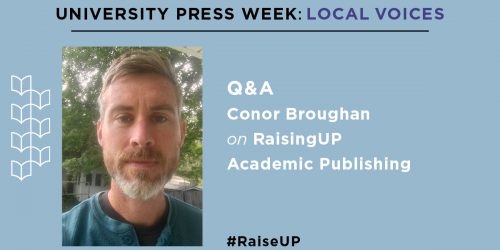University Press Roundup
Welcome to our weekly roundup of the best articles from the blogs of academic publishers! As always, if you particularly enjoy something or think that we missed an important post, please let us know in the comments.
The campaigns for the the 2012 presidential election are really heating up, which means that you should be regularly checking in on the Princeton University Press blog’s excellent Election 101 series for informative commentary on the electoral process and on the campaigns themselves. This week, guest poster John Sides examines poll data on how Americans feel about the wealth and taxes of the two candidates. The results? People increasingly think that Mitt Romney pays less than his fair share of taxes.
Last weekend, there was another tragic shooting, this time in a Sikh temple in Wisconsin. The shooting appears to have been racially motivated. At From the Square, the blog of NYU Press, Jeannine Bell makes a moving plea to start taking racial extremists (often seen as “remnants of a long dead pre-civil rights era”) more seriously, and to institute new hate crime legislation to help prevent crimes like the one in Wisconsin.
At North Philly Notes, the Temple University Press blog, guest blogger Lisa Arellano discusses her study of the history of racially motivated vigilantism in America. She has found that myths often spring up around vigilantes as a way of justifying actions that are clearly illegal and (most people would agree) immoral. She argues that finding the keys to these myths, how they make criminal behavior heroic, is of crucial importance to understanding the justification of modern extralegal violence.
Racially motivated vigilantism is not the only disturbingly present “remnant of a long dead pre-civil rights era” discussed in the blogosphere this week. At This Side of the Pond, Kevin Noble Maillard discusses how interracial relationships are still something of a big deal in the public (and particularly in the political) sphere. After mentioning the raised eyebrows at the possibility of past interracial relationships for Barack Obama and Sarah Palin, Maillard looks back at the troubled history of interracial relationships in America.
In London, the Olympics continue to roll on, and if you have been watching the coverage of the Olympics, you will probably have noticed the prevalence of corporate sponsorships of individual athletes, country teams, and the games themselves. At the OUPblog, David Potter claims that the tension between public and private funding for sporting events is far from a solely modern phenomenon. In fact, he argues that the push and pull of public and private sponsorship of athletic events was common in the Ancient Greek games and in many of the famous Roman sporting events.
While he’s probably not the most famous Transylvanian nobleman with unusual tastes, Franz Baron Nopcsa was an important and influential paleontologist who deserves to be better-known than he is today. At the JHU Press Blog, David Weishampel and Coralia-Maria Jianu make the case that Baron Nopcsa’s work on the dinosaurs of the Balkans and Eastern Europe was ahead of its time.
August is Happiness Happens Month! In honor of the occasion, the MIT PressLog gives us an excerpt from Happiness: A Revolution in Economics that provides a list of the methods that “happiness researchers use to measure individual well-being.” It’s a really fascinating list. Particularly surprising is the negative measure, the U-Index, “defined as the fraction of time per day that an individual spends in an unpleasant state. An episode is unpleasant if the most intense feeling the individual experiences in that episode is a negative one.”
At Beacon Broadside, David Chura addresses an incredibly complicated moral and legal issue: how to appropriately punish children and young adults who commit crimes. In his post, Chura discusses how he struggles with how to feel for both the victims of these crimes and the young offenders themselves, many of whom have, through no fault of their own, lived through awful situations and can tell stories “of childhood neglect and abandonment; of sexual abuse; of violence in the home and on the streets; of parental addiction and disease.”
The political showdown over government involvement in healthcare will likely play an important role in the 2012 presidential election. At the University of Minnesota Press Blog, Tom Berg, a former Minnesota legislator, claims that coming up with creative solutions to the problem of how to provide adequate healthcare on the state level may be the best way to reflect the complexities of the population in America. While Berg doesn’t believe the debate and legislative process will be neat and tidy, he thinks that coming up with multiple solutions on the state level will be “both a challenge and an opportunity for the states to show how well their laboratories work.”
The recovery from the “financial tsunami of 2008” has been a long, slow process, and many feel that the economy isn’t as far along as it should or could be. At the UNC Press Blog, Beth Tompkins Bates argues that in order to continue and speed up the economic recovery, the US should look back at one of the private sector’s great innovators: Henry Ford. Bates takes us through the history of Ford’s risky but often successful ways to increase the productivity and happiness of his work force.
We’ll wrap things up this week with a look at the future of the book in the digital age, courtesy of Georgetown University Press’s John Warren and Ioan Suciu. The big issue up for discussion this week: how to best bring e-textbooks to students and libraries. Suciu asks, “Could providing access to e-textbooks be enhanced by libraries facilitating use of iPads, smartphones, and ebook readers via standardized platforms?”
That’s it for this week. We hope you’ve enjoyed reading. Thanks!



